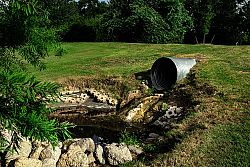

Between 2023 and 2024, serious water pollution incidents caused by water companies in England increased by 60%.
In total, there were 2,174 pollution incidents in 2023 compared with 2,801 pollution incidents in 2024, which is also the highest number of water pollution incidents on record. This in itself represents a 29% increase in pollution incidents as a whole. But the most alarming figure is when it comes to serious or persistent pollution incidents; 75 such incidents occurred in 2024, posing a serious threat to fisheries, drinking water and human health. In 2023, there were 47 such incidents.
These figures, published by the Environment Agency, have shown a consistently poor performance by every English water and sewage company. Of the nine companies responsible for water and sewage, three of them were responsible for 81% of those serious pollution incidents - Thames Water (33 incidents), Southern Water (15 incidents) and Yorkshire Water (13 incidents).
The Environment Agency has identified that the rise in water pollution incidents can be attributed to "underinvestment in new infrastructure, poor asset maintenance, and reduced resilience due to the impacts of climate change". Meanwhile, it is reported that Thames Water has refused to reclaim £2.5m of bonuses given to senior managers in April, which was taken from a £3bn emergency loan provided to the company to help keep it afloat, with further bonuses expected in December. Additionally, in 2024, 24% of water company sites were found to be in breach of their environmental permits.
In particular, the Environment Agency has expressed a concern about increasing pollution spills from pipes carrying wastewater uphill. This scenario accounted for 20% of the serious incidents in 2024.
Environment Secretary Steve Reed said, "These figures are disgraceful and are a stark reminder of how years of underinvestment and weak regulation have led to record levels of sewage polluting our rivers."
Alan Lovell, Chair of the Environment Agency said, "This report demonstrates continued systemic failure by some companies to meet their environmental targets. The water industry must act urgently to prevent pollution from occurring and to respond rapidly when it does. We have made significant changes to tighten our regulation of the water industry and ensure companies are held to account. With a dedicated larger workforce and increased funding, our officers are uncovering and acting on failures to comply with environmental law."
It is expected that the Environment Agency will be using powers given to it under the Water (Special Measures) Act 2025 to take fast action against polluting water companies and to deter illegal activity from happening. In addition, the Environment Agency's water regulation division has been given a £189m boost from the Government, which has been paid for by the sector rather than through public funds. This will help the Environment Agency to carry out an expected 10,000 inspections of water company assets in the coming year.